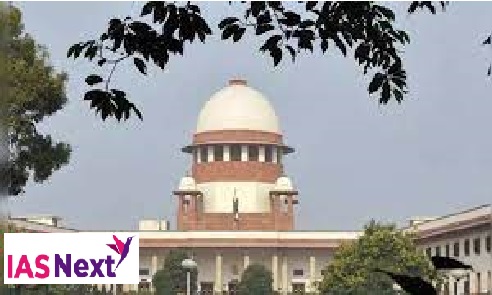CURRENT AFFAIRS
Get the most updated and recent current affair content on Padhaikaro.com
Plea in Supreme Court on new Ordinances
- IAS NEXT, Lucknow
- 20, Nov 2021

Reference News:
Petitions have been filed in the Supreme Court urging the Supreme Court to quash the Ordinances, which allow the Government to extend the tenures of the chiefs of the Central Bureau of Investigation (CBI) and Enforcement Directorate (ED) “in a piecemeal fashion” up to a maximum of five years.
Issues:
- The petitioners said the Ordinances would leave the heads of the two top investigative bodies insecure about their tenure and erode their professional independence.
- Also, no criteria has been provided save for a vague reference to ‘public interest’ which is based on the subjective satisfaction of the Respondents.
- The Government’s move has also drawn sharp criticism from the Opposition parties, which have accused it of taking the ordinance route despite the Parliament session beginning on November 29.
About the Ordinances:
The Union Government has brought in two ordinances allowing the service of the directors of the Enforcement Directorate (ED) and the Central Bureau of Investigation (CBI) to be extended beyond their fixed tenure of at least two years up to a maximum of five years.
- The extension can be given only one year at a time. That is, after a fixed two-year tenure, they may get three annual extensions.
On what grounds have these ordinances been challenged?
About a year ago, the ED Director had been given a one-year extension retrospectively following the completion of a two-year fixed tenure. The move was challenged before the Supreme Court, which upheld the government’s decision. However, it said that such a drastic measure should be taken only rarely.
- The petitioners, who allege that the two ordinances are arbitrary and unconstitutional, cite the judgment, as well as the Apex Court verdict in Vineet Narain vs Union of India (1997) which held that the CBI and the ED chiefs should have a minimum tenure of two years.